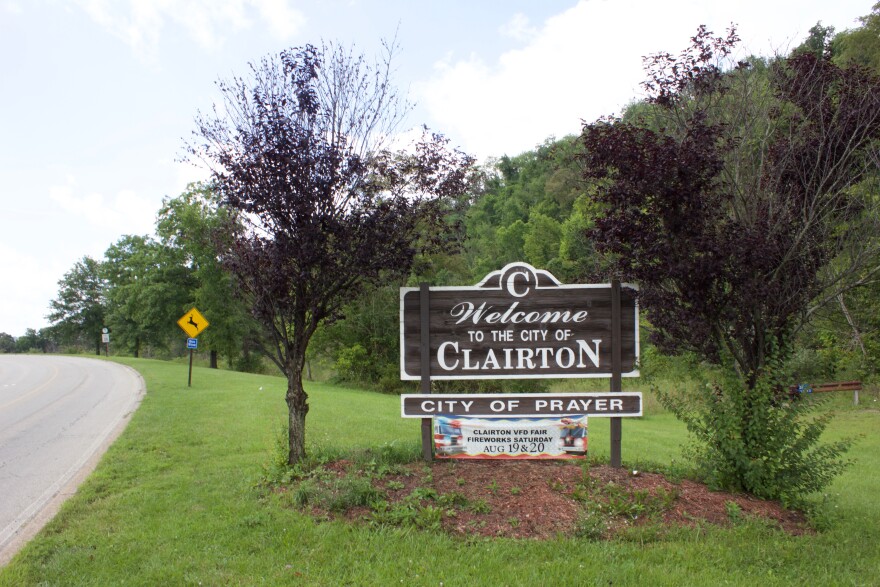Rich Lattanzi said he never aspired to be the mayor of Clairton.

He worked as a pipe-fitter for U.S. Steel, but serving as an athletic director for the basketball program at a local Catholic school and working as a baseball coach brought him into contact with the city’s youth. He voiced some concerns at a city council meeting and someone told him they could use him in the mayor’s office.
“I said, ‘I don’t know anything about politics,’” Lattanzi said. “And I remember the guy said, ‘Exactly, that’s what we need.’”
When he assumed office in 2010, the city was in bad financial shape. Lattanzi recalled a secretary coming to talk to him two years into his tenure. They could meet payroll this month, she told him, but next month was going to be a problem.
He asked what they had done in the past, and she said they borrowed from the pension fund. When he asked if those loans had ever been repaid, she turned and walked away.
“I approached council and said, ‘We got some problems, and I don’t know what the long-term effects would be, but right now I think we need to go and revisit how we do business,’” Lattanzi said.
It required laying people off and streamlining the city’s government. The city’s public works department went from employing 10 people to four. Five of the city’s seven secretaries were let go. The police department tightened its belt as well, and the city’s sewage lines were sold to a private company.
“I lost some friends and some employees and some votes,” Lattanzi said. “But at the end of the day, it’s what we needed to do to make the city profitable again.”

Clairton went under Act 47 — a state oversight program for financially-distressed municipalities — in 1988. Lattanzi remembered people saying the city would never come out of Act 47, but late in 2015 they did. They went from being $260,000 in the red in 2010, to being $4 million in the black today. He estimates they’re in a position to stay healthy for the next five to 10 years.
Despite progress, Lattanzi said it’s the negative things that land the city in the paper. There is still drug activity in Clairton and the occasional shooting. Until recently, the only thing that consistently brought positive attention to the community was the high school football team.
From 2009-14 the team racked up 66 consecutive wins and several players have gone on to obtain college scholarships. Just this year, the University of Pittsburgh’s Tyler Boyd was drafted by the Cincinnati Bengals.
But the recent financial success is improving the city’s outlook.
Greg Jones is the executive director of Economic Development South, a non-profit working to improve business districts in many neighborhoods in South Pittsburgh and the South Hills. The organization recently begun work in Clairton, as well.

“I think what’s exciting about Clairton is that its sense of place is so strong,” Jones said. “It has a great history, and that authenticity creates a community and folks are looking for that.”
Jones said great housing stock and walkable neighborhoods provide a foundation for Clairton to build on. In the short term, Economic Development South is working to get some tenants into abandoned buildings along St. Clair and Miller avenues. They also want to establish a consistent source of fresh food for the city’s residents.
“They no longer have enough of a market to be able to support a supermarket,” Jones said. “One of the projects that we’re proposing is to … run a grocery that’s just fresh produce and meat.”
He said the thing that sets Clairton apart from other mill towns in the Mon Valley is that the mill is still active, which can make planning difficult.
“One of the tricky parts about still having a mill is the hope is that employer remains there,” Jones said. “But I think you also have to be cognizant that that may not always be the case.”
Lattanzi said the mill is still a major employer and a significant part of the city’s tax base — though after a recent reassessment they’ve gone from paying $11 million a year in taxes to about $2.5 million.

They’ve struggled to obtain government grants to fund projects since coming out of Act 47, but he said the town has a do-it-yourself spirit and residents are willing to take things into their own hands.
Lattanzi and other residents have gone out and boarded up old buildings. Local artists are in the process of decorating them with some murals. He said it’s the people of Clairton that keep him hopeful about what can sometimes seem like a thankless job.
“My wife says, ‘Why do you do it?’” Lattanzi said. “I guess it’s simple, I care. I only make $125 every two weeks, and it’s not about the money. I just, I love this town. I want to give back to the community what I got.”












